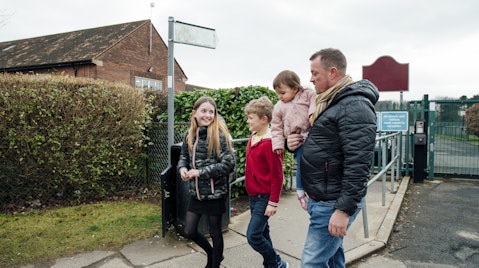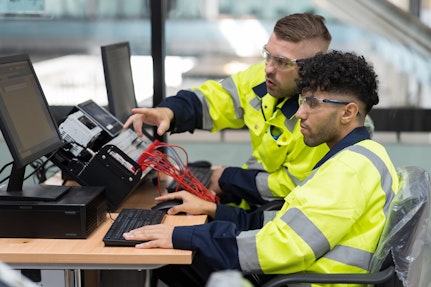Fair Flexible Councils
How to increase access to and the availability of flexible work

The twin pressures of the post-pandemic recovery and the cost of living crisis are causing local councils to refocus their priorities. Flexible work has an increasingly important role in unlocking and widening access to good quality jobs. Recognising this, many local and combined authorities are looking to extend and deepen their commitment to flexible work.
To support local and combined authorities with this priority, Timewise has developed a new programme, Fair Flexible Councils, in partnership with Camden Council. The programme offers strategic and practical support to ensure that all workers within a locality have access to good quality flexible work, regardless of job role or sector.
This workshop, led by Sarah Dauncey (Head of Partnerships and Practice at Timewise) and Kate Gibbs (Head of Inclusive Economy at Camden Council) shared insight into Camden’s journey to becoming the first Fair Flexible Council and explored practical action that local and combined authorities can take to drive fair and flexible work across their locality.
Camden: the first Fair Flexible Council
In Camden, this programme of work was driven by four key objectives:
- All workers in Camden have fair access to good quality flexible work regardless of role to enhance their wellbeing and financial stability.
- No jobseekers are excluded from the recovery due to their need to balance work with care or manage their health or disability.
- Camden employers embed flexible working to become more inclusive, attracting a more diverse local workforce and tackling skills shortages.
- Camden can take leadership action and convene and influence wider scalable change through anchor institutions, across the locality and nationally.
To deliver these objectives, Camden developed an Action Plan with KPIs organised around five pillars that reflect the councils' ability to drive fair and flexible work as an employer, service provider, and anchor organisation.
Key learnings
- Embed fair flexible work into policy and strategy. Camden's KQ2050 strategy sets out a spatial and social value framework for its Knowledge Economy. Camden is home to a cluster of scientific and knowledge-based institutions and companies that specialise in areas like life sciences, data and technology, and the creative industries. Supporting the future development of these industries is a key priority and also presents an opportunity to drive fair and flexible practices across anchor institutions in this sector.
- Secure commitments to fair flexible practice through planning obligations, grant agreements and leases. Camden Council is exploring opportunities around incorporating fair and flexible working requirements into section 106 agreements and council leases for new commercial tenants. Other examples of securing commitments to good work through leases include Islington Council’s Living Wage Landlord initiative.
- Use existing relationships with businesses and employers to promote fair and flexible work. Good Work Camden delivers neighbourhood job hubs that offer strengths-based and relational employment support. Good work brokers liaise between local employers and job seekers which allows the council to understand and respond to the demand and supply pressures of flexible work in the borough. Camden also convenes an Employment and Skills Network and is providing training and support to employment advisors and brokers in the borough to help widen access to fair and flexible work. Finally, smaller businesses in Camden’s Inclusive Business Network are offered light-touch HR support to help them devise flexible work policies and practices.
- Move beyond the usual suspects and target support to sectors that traditionally find flexible work more challenging. Camden is responding to recruitment challenges in the Health & Social care and Hospitality sectors by piloting small-scale initiatives to develop and promote the sectors’ fair and flexible credentials. The council is also working with commissioned care sector employers to embed fair and flexible work principles into values-based recruitment practices. More information on social care and flexible working is available here.
- Be mindful of language. Flexible work can mean different things to people in different sectors and organisations. In industries where opportunities for flexible working are more limited (e.g. manufacturing, construction, and hospitality), the term can be immediately confronting and challenging. Using alternative language such as ‘shift-based systems’ or ‘good work’ may lead to more effective conversations and positive outcomes. Equally, employers may already have flexible working arrangements in place, but may not label them as such. Using language that is accessible and approachable will help to avoid confusion and resistance around fair and flexible work, which some employers may associate only with remote or hybrid working.
Resource Hub
Browse our resource library to find what inclusive growth looks like in practice and how it is benefitting people and places across the UK










